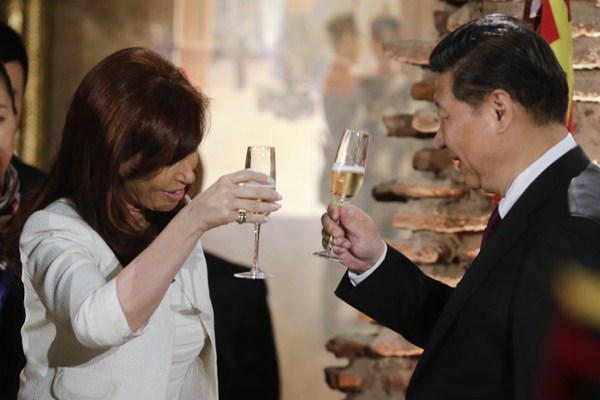In July, just days before a New York court ruling put Argentina in default on a $539 million payment to creditors, Argentine President Cristina Fernandez de Kirchner signed an agreement with Chinese President Xi Jinping whereby China would loan Argentina $11 billion worth of yuan, which the latter could use to either bolster its currency reserves or pay for imported Chinese goods. The first installment of $1 billion is expected by year’s end, according to the Buenos Aires daily La Nacion. The currency swap deal, as well as a secretive deal for a Chinese satellite-tracking station in Argentina, have drawn criticism from some quarters in Argentina and raised suspicion about China’s motives.
According to the Argentine government, the swap arrangement will go to bolstering the country’s reserves of hard currency, which Argentina needs badly. Back in January, the Fernandez government ended an unofficial program, known as “the clamp,” that aimed to prop up the peso by restricting access to dollars. Argentines rushed to cash in the national currency for dollars, forcing the central bank to deplete its dollar reserves. Since then, as shop owners have marked up prices to account for the falling buying power of the peso, inflation has soared—the latest estimates have prices on track to rise 30-40 percent in 2014.
Knock-on effects are hastening the economy’s descent. Soybean farmers have opted to hoard part of their crop instead of selling it in worthless pesos. Meanwhile, beef exports have slumped due to government controls meant to ensure that the country’s working class can still afford the nightly steak that many Argentines regard as a birthright. Given the slumping peso and declines in export revenue, Argentina’s foreign reserves have dwindled to an eight-year low in recent months.

